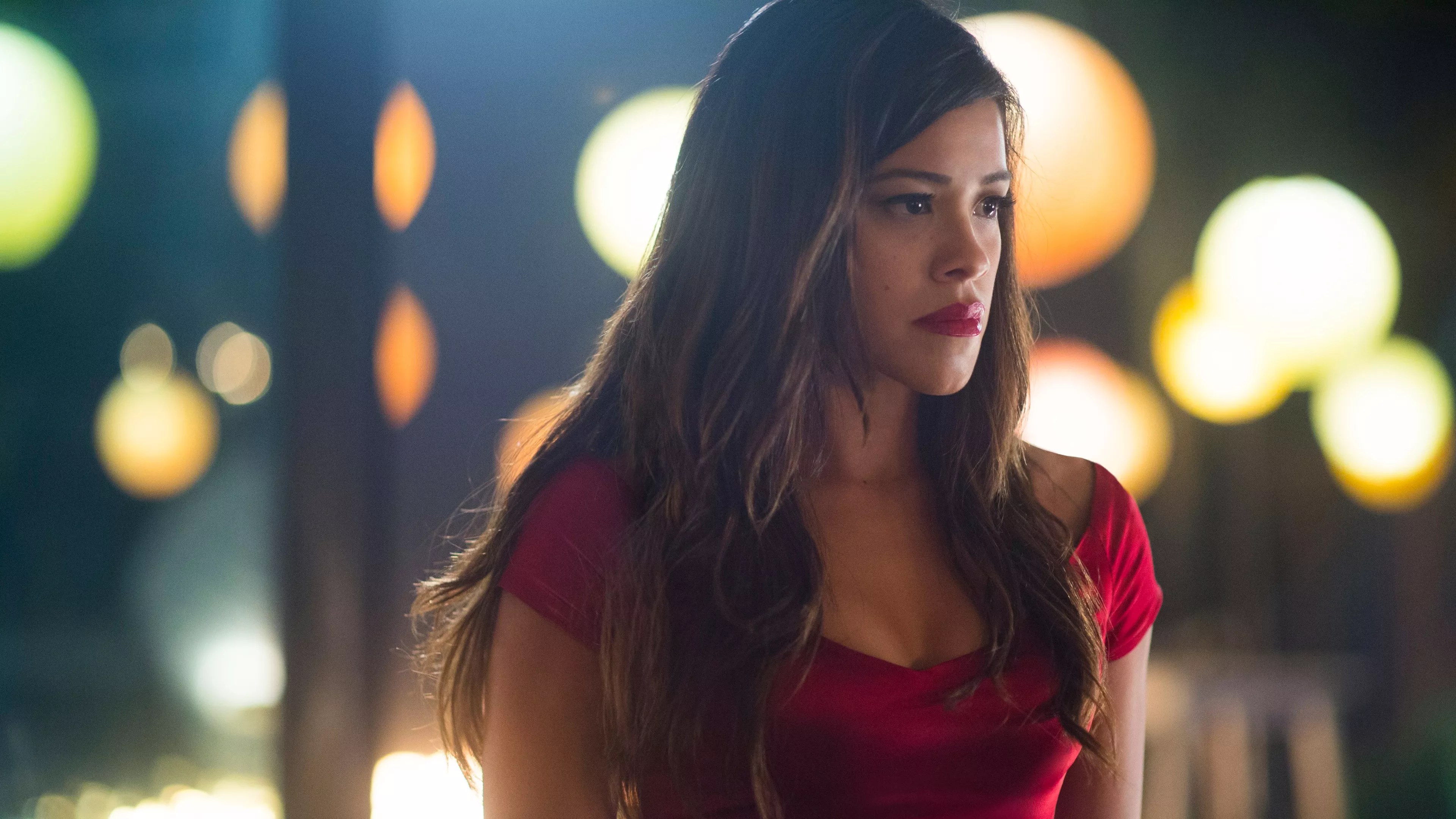
Sony Pictures Releasing

Audio By Carbonatix
Miss Bala. When the words “based on a Spanish-language film” pop up in
But comparing the two is inevitable when Naranjo’s film, all quiet thrills
It is especially unfortunate considering Hardwicke is typically skilled at telling the stories of women, from Thirteen to the underrated and frequently maligned Twilight. The bones of female friendship and of controlling relationships are present, but Miss Bala barrels too quickly through
The greatest shame of Miss Bala might actually be wasting the talent of Gina Rodriguez, whose Gloria is changed into a
Capernaum. In her stunning third feature as a director and screenwriter, Lebanese actor/writer/director Nadine Labaki examines the most disenfranchised people of her Middle Eastern country: street children scraping together an existence in Beirut’s slums. Nominated for the Foreign Language Oscar, Capernaum (which means “chaos”) predominantly features two child actors who have never appeared in a movie before. Zain Al Rafeea gives a dynamic performance as a 12-year-old runaway who finds himself reluctantly caring for 2-year-old Yonas (Boluwatife Treasure Bankole) after the toddler’s mother, Rahil (Yordanos Shiferaw), an undocumented Ethiopian immigrant, is nabbed by the authorities.
It’s a bittersweet film that not only depicts the beauty of the nature of humanity to do better despite difficult
From heartbreaking writing to stirring performances and startling mise en scène, Labaki has made an uncompromising movie. However, if there is one misstep, it’s her decision to amp up the drama with overly mournful string music by Khaled Mouzanar, coupled with slow-motion camera work, a contrivance the story never needs. Zain’s situation is sad enough and presented with raw, handheld camera work featuring performances that feel so real that one might confuse its scenes for documentary work. Winner of the Jury Prize at last year’s Cannes Film Festival, the film had its Florida premiere during Miami Film Festival GEMS last October, where it also won the Gigi Guermont Audience Award. Opens Friday, February 1, at Coral Gables Art Cinema and MDC’s Tower Theater. – Hans Morgenstern

Breaking Glass Pictures
Holiday. A thread of discomfort runs through Isabella Eklöf’s Holiday, a film about sex, violence, and their intertwining in a rather odd but interesting way. Sascha (Victoria Carmen Sonne) mostly enjoys her life as a drug lord’s trophy girlfriend. She lounges by pools and dines and drinks extravagantly. But comfort comes at a price: punishment, drugging, misogyny. When a chance meeting with a Dutch traveler develops into something more, Eklöf uses the ensuing love triangle to explore the way Sascha handles her relationships instead of settling for showing a simple romantic tryst.
Holiday‘s appealing but clinical aesthetic, favoring long takes and cool tones, feels deeply reminiscent of Michael Haneke, though the film’s sense of humor and characterization of a bumbling drug family living in moderate luxury edges closer to Ulrich Seidl. Not unlike the script Eklöf co-wrote for last year’s wonderfully weird Border, this one seems primed to provoke the audience, but the provocation isn’t without merit.
At its most riveting, Holiday forces the viewer to experience some dicey situations, questioning the limits of consent between two parties,
The Image Book. Jean Luc Godard pioneered the French New Wave movement in the 1960s, but he didn’t stop there. Since 2001, he has been creating progressive cinema that eschews both fictional and documentary narrative. Instead, he sometimes creates staged scenes or shoots banal images only to place them alongside sampled images from other movies, generating a work both self-aware of its medium and the social history unfolding at the time. In his previous film, Goodbye to Language (2013), he experimented in 3D.
His latest, The Image Book, might stand as the purest bit of cinema the 88-year-old has ever created. It was Vsevolod Pudovkin, a pioneer of Russian cinema, who said, “The foundation of film art is editing.” And no film in Godard’s career has ever taken the association of images to such a fluid, profound level. The film is a compilation of moving images from his own past, classics such as Vertigo, and obscure, sometimes-horrifying clips found on the internet, like ISIS execution footage. At times, it feels like flipping through channels on an old TV set. The legend often speaks over the images, a technique he’s long used. He references philosophers but also brings up people such as the turn-of-the-20th-century killer priest Hans Schmidt or makes broad statements about time’s creeping nature.
The opening of Yulianna Avdeeva’s “Piano Quintet, Op. 18-1, Moderato Con Moto” often cuts his narrative off before jump-cutting to another scene, often digitally enhanced in a roughshod manner. But it’s in the edits and juxtapositions where meaning arises. From images of chugging trains pumped up to psychedelic levels of high contrast, to silent film footage of actors stabbing each other, there’s a sense of life and death in dialogue throughout the film.
Toward the end of The Image Book, Godard turns his focus to movies of the Arab world, as if to remind viewers that the art of cinema transcends cultural differences. Throughout The Image Book, you are made aware of the medium, from switching aspect ratios to the appearance of rolls or reels of film. One shot of unspooling film features the contrast turned up so high it almost appears to radiate vibrant heat. Godard once said, “Cinema is dead,” but here he confirms it’s radiantly alive. Opens Friday, February 1, at Miami Beach Cinematheque. – Hans Morgenstern